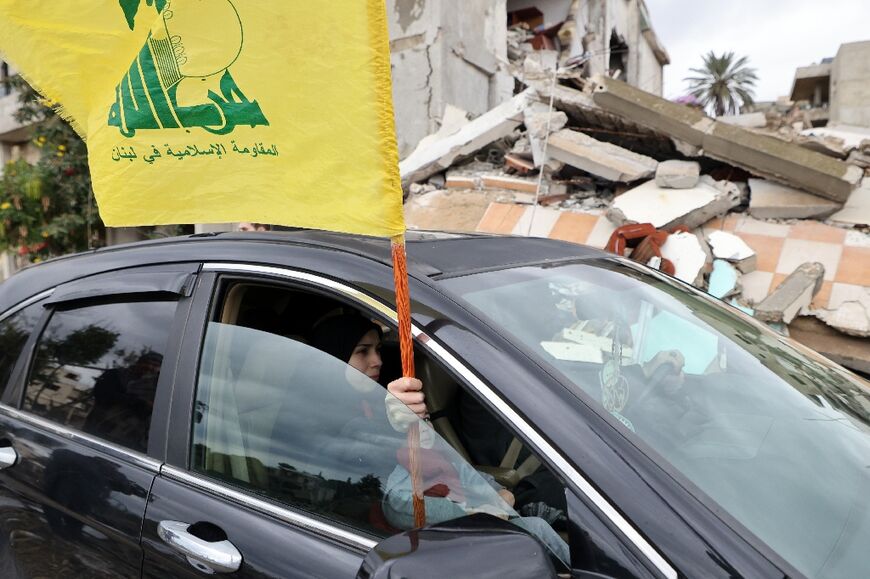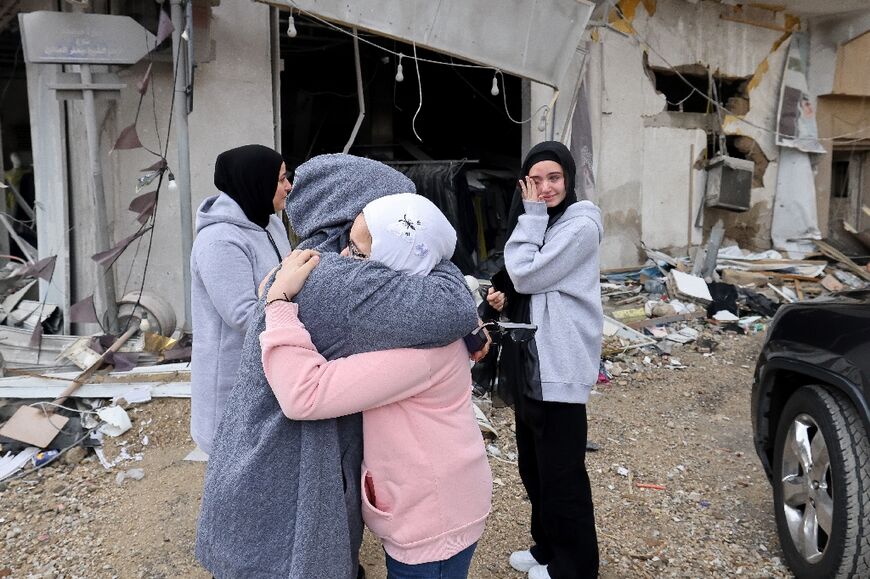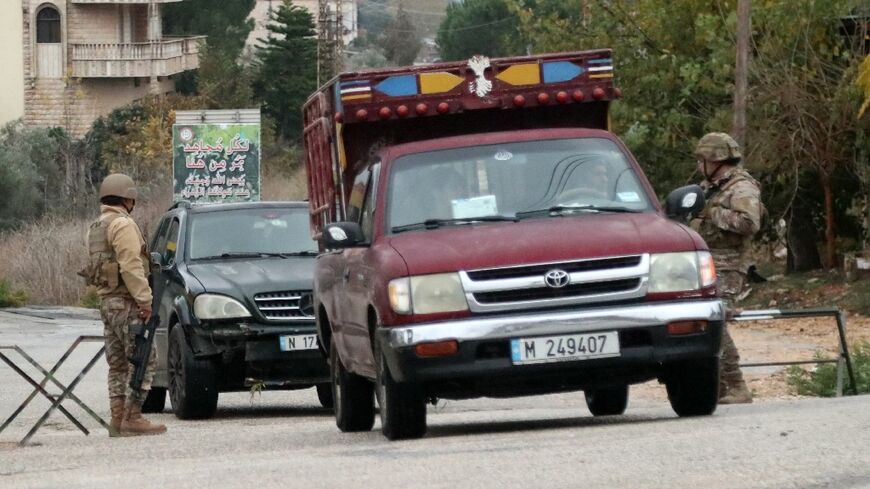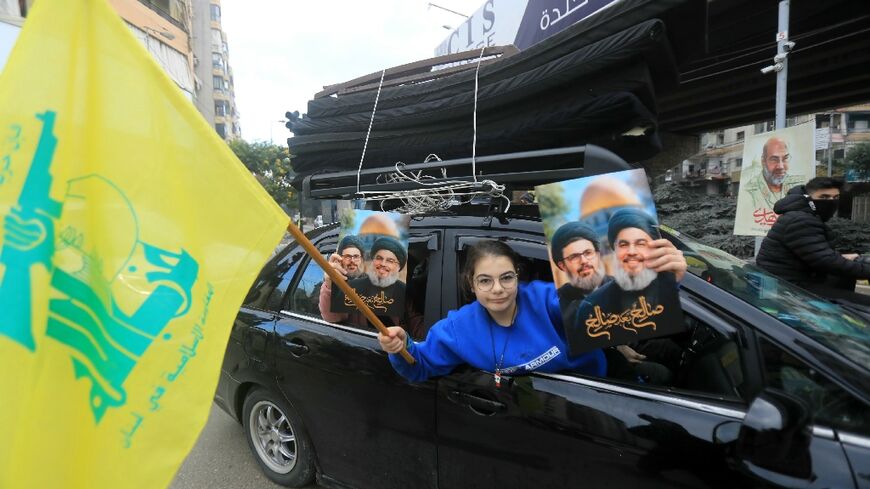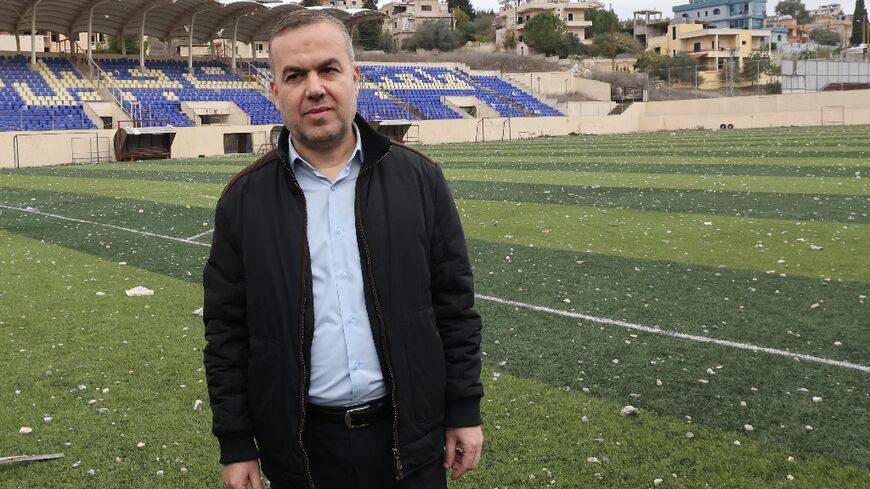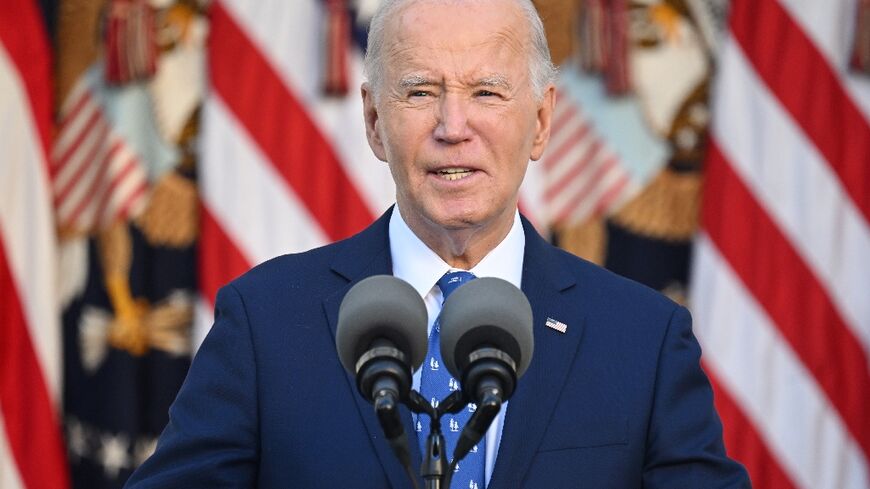South Lebanese return to devastated villages after Israel-Hezbollah truce

As soon as a truce was announced between Israel and Hezbollah, widow Umm Mohammed Bzeih rushed back to south Lebanon to check on her beloved home, only to find it badly damaged.
"I'm cleaning the rooms so we can stay... though the windows are broken," said Bzeih, 44, the contents of her home strewn everywhere, the curtains ripped and food rotting in the kitchen.
"Despite all the destruction and the sorrow, we are happy to be back," said Bzeih, who fled with her four children from Zibqin in south Lebanon's Tyre district when Israel began heavily bombarding the region two months ago.
"I feel as if our souls have returned," she said, visibly exhausted as she swept up the shattered glass and pieces of stones that carpeted the floor.
Bzeih was among a small number of residents who returned to Zibqin on Wednesday, hours after an Israel-Hezbollah truce came into effect.
Many of the homes in the village have been destroyed, with similar devastation repeated in other places hit by Israeli strikes, AFP journalists saw during a Hezbollah-organised media tour of a number of heavily damaged locations in the district.
Israel on September 23 launched massive air strikes targeting Hezbollah strongholds in Lebanon and later sent in ground troops, after more than a year of cross-border fire initiated by the Iran-backed group over the Gaza war.
From her balcony, surrounded by flowers, the thin Bzeih, her head covered, surveyed her garden including damaged fruit trees.
Here "I used to feel relaxed. Our lives were totally different," she said.
- Destruction -
But "the family's safety is more important than all the damage", she said, adding that if Hezbollah had not confronted the Israeli army, "we would still be displaced".
The United Nations International Organization for Migration says the violence has displaced almost 900,000 people inside Lebanon, while Lebanese authorities say at least 3,823 people have been killed.
On the sidelines of the tour, AFP journalists saw vast destruction, including damaged or destroyed homes and the charred remains of vehicles.
A cafe in Zibqin had its facade blow off while its coffee machine was still intact and photos, including the picture of a Hezbollah member likely killed fighting Israel, hung on the wall.
Nearby were dried tobacco leaves, in an area where agriculture is the livelihood for many, while a strike-damaged rocket launcher on a vehicle sat on a road.
In nearby Yater, where Israeli fire last month killed three Lebanese soldiers during a rescue operation, other army personnel were stationed at a checkpoint nestled among the destruction.
In another village, bombardment had damaged a monument to Iran's supreme leader Ayatollah Ali Khamenei declaring that Hezbollah-backer Tehran "will always stand by the Lebanese people".
- 'Extremely painful' -
Destruction and images of Hezbollah fighters lined the road from Zibqin to Qana, a handful of kilometres (miles) away, while a poster belonging to the group read: "The blood of the martyrs creates the victory".
In Qana, whose main street has been completely upturned by the fighting, Ahmad Halloum, 55, was pacing through the rubble.
"Anyone would cry when they see this," he said.
"It's true that maybe it can all be rebuilt... but why all this destruction? Why were stores and empty homes targeted?" he asked, visibly upset, though his own house and shop in a nearby village had survived.
"The sight behind me is heartbreaking," he said, adding that "people are exhausted".
Qana, which suffered heavy civilian casualties in Israeli attacks in 1996 and 2000, was largely spared during almost a year of cross-border exchanges of fire since October last year, before being repeatedly hit by deadly Israeli strikes over the past two months.
"We did not expect to return and see this destruction," said Malak Qleit, 15, as her upset mother stood nearby trying to compose herself.
"We were expecting to find the houses as we left them and to find our loved ones," but instead "we have lost a lot, and our loved ones lost their homes", she said.
The blue-eyed Qleit, who wants to be a lawyer, said she would "never forget being displaced".
"It was extremely painful", she said.
"We don't deserve this to happen to our houses," she added, as she and her family prepared to check on their home for the first time.
"This shouldn't have happened to us... nobody wanted this. We thought the war would stay near the border," she added.


